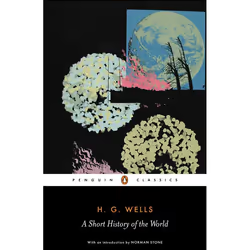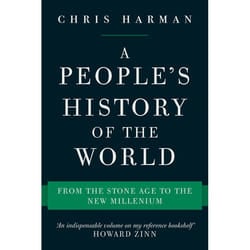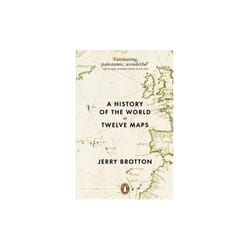
ISBN A Short History of the World
ISBN A Short History of the World, Classics, English, Paperback, 400 pages
Similar Products
Product Information
A Short History of the World
Of the more than one hundred books that H. G. Wells published in his lifetime, this is one of the most ambitious. Spanning the origins of the Earth to the outcome of World War I, A Short History of the World is an engrossing account of the evolution of life and the development of the human race. Wells brings his monumental learning and penetrating historical insight to bear on the Neolithic era, the rise of Judaism, the Golden Age of Athens, the life of Christ, the rise of Islam, the discovery of America, the Industrial Revolution, and a host of other subjects. Breathtaking in scope, this thought-provoking masterwork remains one of the most readable and rewarding of its kind.
For more than seventy years, Penguin has been the leading publisher of classic literature in the English-speaking world. With more than 1,700 titles, Penguin Classics represents a global bookshelf of the best works throughout history and across genres and disciplines. Readers trust the series to provide authoritative texts enhanced by introductions and notes by distinguished scholars and contemporary authors, as well as up-to-date translations by award-winning translators.
About author(s)
H. G. Wells was born Herbert George in Bromley, Kent, England, on September 21, 1866. His father was a professional cricketer and sometimes shopkeeper, his mother a former lady’s maid. Although “Bertie” left school at fourteen to become a draper’s apprentice (a life he detested), he later won a scholarship to the Normal School of Science in London, where he studied with the famous Thomas Henry Huxley. He began to sell articles and short stories regularly in 1893. In 1895, his immediately successful novel rescued him from a life of penury on a schoolteacher’s salary. His other “scientific romances”—The Island of Dr. Moreau (1896), The Invisible Man (1897), The War of the Worlds (1898), The First Men in the Moon (1901), and The War in the Air (1908)—won him the distinction as the father of science fiction. Henry James saw in Wells the most gifted writer of the age, but Wells, having coined the phrase “the war that will end war” to describe World War I, became increasingly disillusioned and focused his attention on educating mankind with his bestselling Outline of History (1920) and his later utopian works. Living until 1946, Wells witnessed a world more terrible than any of his imaginative visions, and he bitterly observed: “Reality has taken a leaf from my book and set itself to supercede me.”
Customer Reviews
Share your opinion on the product or read reviews from other members.












